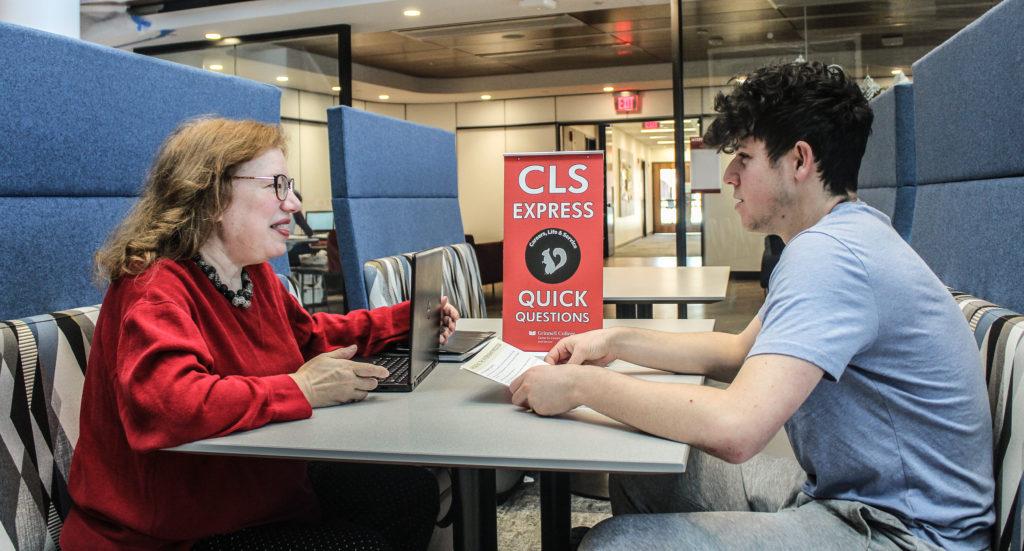By Miraya Baid
baidmira@grinnell.edu
Applications for the first round of student internship funding requests to the Center for Careers, Life and Services (CLS), as well as for the only round of Rosenfield Program funding, closed last Sunday. Current first-, second-, and third-year students are eligible to apply for summer internship funding to offset the costs of food, transportation and housing for an eight- to 10-week, full-time unpaid or underpaid internship. The CLS funds all types of internships, while funding from the Rosenfield Program is intended specifically for students pursuing internships in fields related to government and public policy.
Professor Barbara Trish, political science, directs the Rosenfield Program. She said that the program began funding internships “because it was a great way to get Grinnell students out into the real world to see how international relations, human rights and public affairs play out in the workplace to help students get a sense of the career opportunities they have in front of them.”
Apart from the early deadline, Trish believes that Rosenfield internships are different from CLS internships in terms of the network that Rosenfield grant recipients have access to. She said, “It’s not just about their careers … it’s about how people’s lives can become intertwined with different missionaries of the program. … This is the Rosenfield family, which is a network of people who over the decades have gotten internships. Some of these people are actually hosting interns, while there are others who have been involved with the program in all sorts of different ways. Additionally, we also look into the future, and how the student may take on different roles in that network. We also usually host a lunch session with the interns where they talk about their experiences and share with everybody what’s out there.”
Trish said that the Rosenfield Program and other granting agencies on campus work with the CLS, who processes and distributes the applications. Once the Rosenfield Program gets the applications, three program committee members read the applications with a number of different things in mind: Does this look like a good experience for the student? Does it look like there’s going to be good support at the internship site for the student? Most importantly, according to Trish, is the question of whether the internship fits in with the program’s mission.
Trish added, “I think it’s really important to celebrate Joe Rosenfield, a Grinnell alumnus who is responsible for putting the college on really strong financial footing, and to remember what he gave to the community and the college, and support students going out there and paying back by making the world a better place.”
Saketan Anand ’21 received funding for a summer internship through the CLS last summer. He said, “My situation was kind of exceptional, because I applied for an internship that was through my Spanish major. I had the opportunity to apply for internship funding through the CLS along with the Spanish department. They have a fellowship amount set aside for Spanish majors who are trying to do internships in their related fields. Basically, I went through all the motions for how CLS does the usual processes for internship funding. I pretty much got my need met, which was really, really nice, because I was interning at a nonprofit that was helping undocumented immigrants with asylum applications and work authorization. On top of that, San Francisco’s a really expensive city, and I had to fly out there too, so the money really mattered to me. The funding honestly made all the difference.”
However, Anand said, “Some qualms I have about the process are that they don’t really evaluate the motivation for the students’ need in the best way possible – I’ve heard anecdotally of students bypassing the system or asking for more funding that they didn’t really need because they were flying back home, which meant that they were going to be spending that money regardless, or of students who have been granted internship money who didn’t actually do an internship. I don’t know how the department actually verifies what’s going on with the internship if the students are writing the essays and reflections for an internship that they aren’t actually doing.”
He continued, “Another one of my concerns with the process is that they host their form on the GrinnellShare page, which makes it really difficult to work with. Maybe the IT side of it needs to be updated, because it’s pretty cumbersome and hard to read – not the most accessible fonts, etc.,” he added.
The next round of CLS internship funding closes on April 1, 2020.





















































